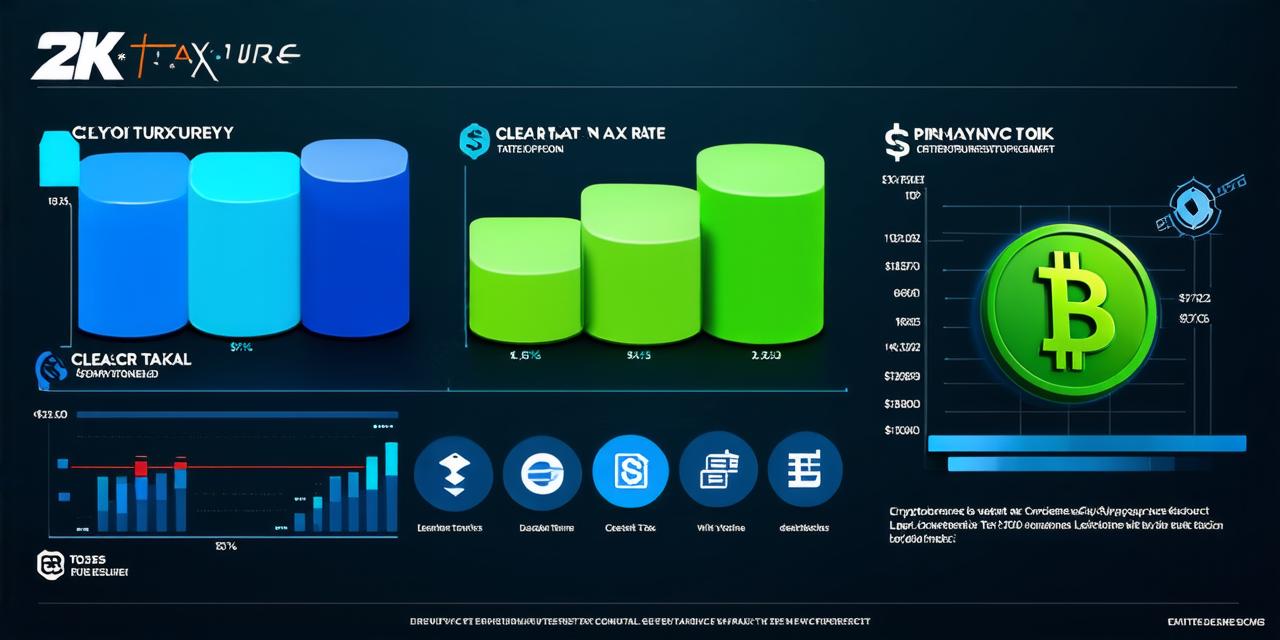The Basics of Cryptocurrency Taxation
Cryptocurrencies, also known as digital or virtual currencies, are decentralized digital assets that use cryptography for security and are exchanged on public blockchains. Like any other investment, the value of cryptocurrencies is subject to taxation in most countries around the world.
The tax treatment of cryptocurrencies varies depending on where you live. In the United States, for example, the Internal Revenue Service (IRS) treats cryptocurrencies as property for tax purposes. This means that capital gains taxes apply to any profits or losses made from buying and selling cryptocurrencies.
In Canada, the Canadian Revenue Agency (CRA) also considers cryptocurrencies property for tax purposes. The CRA has a detailed guide on its website outlining how cryptocurrencies are taxed in Canada.
What is Capital Gains Tax?
Capital gains tax is a tax levied on the profit or loss made from selling an asset that has increased or decreased in value over time. In the case of cryptocurrencies, if you buy a cryptocurrency for $10 and sell it for $100, your capital gain would be $90 ($100 - $10 = $90).
Capital gains tax is calculated on the difference between the purchase price and the sale price of an asset. In some countries, such as the United States and Canada, capital gains tax only applies to the profit made from selling the asset. This means that if you sell a cryptocurrency for less than the purchase price, there is no capital gain tax owed.
What are Tax Losses?
Tax losses refer to any losses incurred when selling an asset at a lower price than it was purchased. In the case of cryptocurrencies, if you buy a cryptocurrency for $10 and sell it for $5, your capital loss would be $5 ($10 - $5 = $5).
Tax losses can be used to offset gains made from other investments or activities. For example, if you have a capital gain of $100 from selling one cryptocurrency and have a capital loss of $50 from another investment, the first $50 of your capital gain will be taxed as income, while the remaining $50 will be offset by your capital loss.
How are Cryptocurrencies Taxed in Other Countries?
Cryptocurrency taxation varies widely depending on where you live. Here is a brief overview of how cryptocurrencies are taxed in some other countries:
- United Kingdom: The UK considers cryptocurrencies as property for tax purposes. Capital gains tax applies to any profits made from buying and selling cryptocurrencies, but there is no capital loss tax or income tax on cryptocurrency transactions.
- Australia: In Australia, the Australian Taxation Office (ATO) treats cryptocurrencies as property for tax purposes. Capital gains tax applies to any profits or losses made from buying and selling cryptocurrencies. Income tax does not apply to cryptocurrency transactions.
- Germany: In Germany, cryptocurrencies are considered a form of private money. This means that they are subject to income tax, but not capital gains tax. There is also no transaction tax on cryptocurrency transactions in Germany.
- Japan: In Japan, cryptocurrencies are legal tender and are subject to income tax. Capital gains tax does not apply to cryptocurrency transactions in Japan.
FAQs About Cryptocurrency Taxation
What happens if I sell a cryptocurrency at a loss?
If you sell a cryptocurrency at a loss, you may be able to deduct the loss on your tax return. However, there are limits on how much capital losses can be deducted in most countries.
Do I need to file a tax return if I only invest in cryptocurrencies?
In most countries, if you only invest in cryptocurrencies and do not have any other income or investments, you may not need to file a tax return. However, it's always best to consult with a tax professional to ensure that you are following the proper tax laws in your country.
Are there any exceptions to capital gains tax on cryptocurrencies?
In some countries, such as the United States and Canada, there may be certain exceptions to capital gains tax on cryptocurrencies. For example, if you hold a cryptocurrency for more than one year before selling it, you may be able to claim long-term capital gains tax treatment, which is typically lower than short-term capital gains tax.

Can I trade cryptocurrencies without paying taxes?
<p>In most countries, trading cryptocurrencies is considered a form of investment and is subject to income tax or capital gains tax. However, it's important to note that different countries have different tax laws, so it's always best to consult with a tax professional to ensure that you are complying with the proper tax laws in your country.</p>
<p>How do I report my cryptocurrency investments on my tax return?</p>
<p>In most countries, you will need to report your cryptocurrency investments on your tax return. This typically involves providing information about your purchases and sales of cryptocurrencies, as well as any gains or losses made from those transactions. It's always best to consult with a tax professional to ensure that you are reporting your cryptocurrency investments correctly.</p>
<h3>Summary</h3>
<p>Cryptocurrencies are a relatively new form of digital asset, and as such, their tax treatment is still evolving in many countries around the world. Capital gains tax is one of the most common ways that cryptocurrencies are


